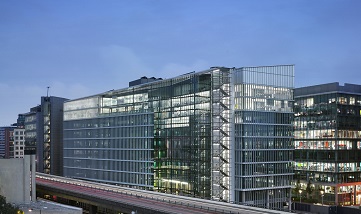 Pushing through on a plan to get out of the early-stage anti-infectives R&D space, AstraZeneca ($AZN) is spinning out its Waltham, MA-based company into an independent biotech, a move that will have an impact on the 95 staffers remaining in the swiftly dwindling operation.
Pushing through on a plan to get out of the early-stage anti-infectives R&D space, AstraZeneca ($AZN) is spinning out its Waltham, MA-based company into an independent biotech, a move that will have an impact on the 95 staffers remaining in the swiftly dwindling operation.
In a statement to FierceBiotech, which recently provided an insider's account of AstraZeneca's struggle to find some industry players to handle the spinout, the pharma giant says it will create a standalone subsidiary and provide it with $40 million in financing. The new company, which hasn't been named yet, will take over the antibiotic pipeline, including the novel gyrase inhibitor AZD0914, currently in Phase II for gonorrhea. And AstraZeneca says that it expects that some of the current employees in the group will run it.
 |
| AstraZeneca's headquarters in London--Courtesy of AstraZeneca |
"As already communicated to our employees, this new way of conducting small molecule antibiotic research and early-stage development will impact approximately 95 employees based in Waltham, MA," AstraZeneca tells FierceBiotech. "It is anticipated that some of the researchers impacted by the changes will take up roles in the new company, or in other parts of AstraZeneca. We are fully committed to supporting our people through the transition."
There's no final tally on how many staffers face the ax.
AstraZeneca went on to underscore that the move regarding Waltham will have no impact on its late-stage work in the field.
As FierceBiotech reported more than a week ago, AstraZeneca has been shopping this deal to a wide variety of industry insiders, both independent biotechs as well as venture capital groups with a history in the field. For more than a year now, the pharma giant had been seeking an investor willing to take control of the assets, while allowing AstraZeneca to keep a substantial stake for itself. That's the same model that formed the base of its deal with Eli Lilly ($LLY) in Alzheimer's. A behind-the-scenes look at the dealmaking process for antibiotics, though, revealed some big issues preventing AstraZeneca from finalizing a pact. A variety of insiders in the anti-infectives field said they had carefully considered the deal AstraZeneca has been shopping--and walked away.
"AstraZeneca had a formal process underway where they were pitching spinning off the business and AstraZeneca being the lead shareholder," one executive close to the bargaining table told me. "Based on the economics of the deal and the assets involved, it was very difficult to make the proposal work. I know they shopped it to everyone" without getting much interest.
"The challenge was that they wanted to spin out the whole pipeline plus a 20-person team," said another. "The pipeline had a couple of interesting assets but they wanted to get paid for the uninteresting assets as well."
Former staffers at the group say that when the process was begun, AstraZeneca--which has been paring down its pipeline while beefing up its focus in key areas--had an R&D group that counted 175 employees. But with the writing on the wall, dozens of staffers left as soon as they lined up other positions. And concerns grew in recent weeks as rumors spread that AstraZeneca was unable to find a partner for the deal, putting it in a position where it would have to restructure the group on its own and downsize the staff.
AstraZeneca was unable to come up with a deal of its choosing despite the fact that antibiotics have been making something of a comeback in biopharma after years on the sidelines.